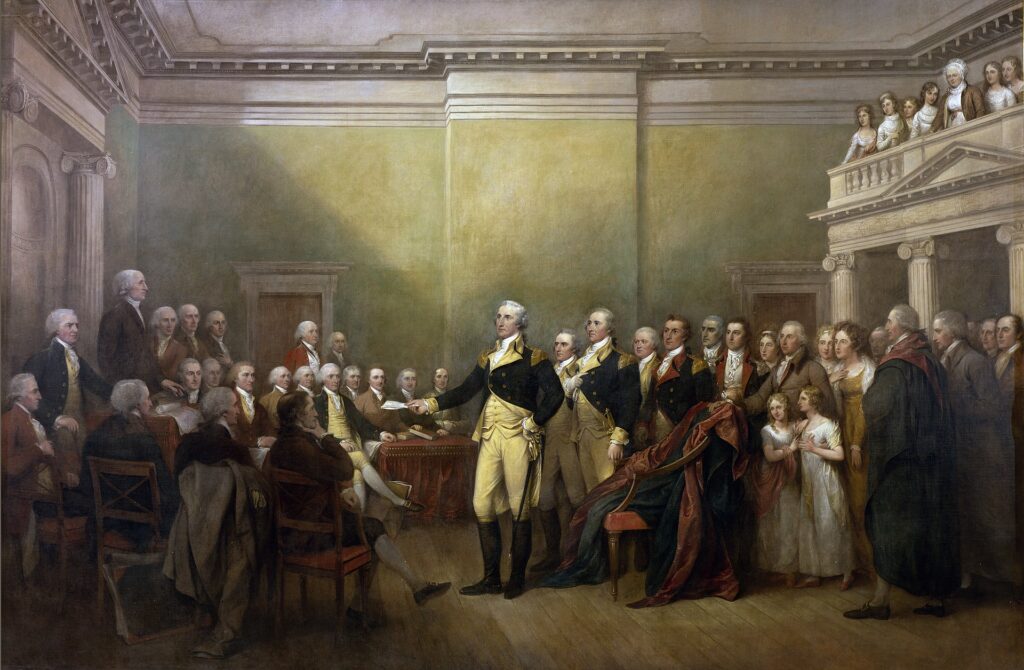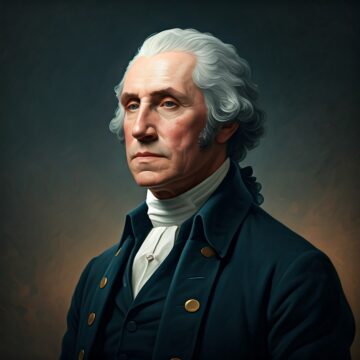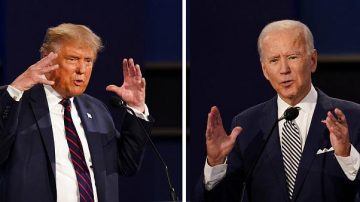by Mark Harvey

The biggest hazard on my one trip to Minneapolis was being invited to too many family picnics and possibly dying from an overdose of mayonnaise. You have to go to Minnesota to really experience what’s known in the vernacular as Minnesota Nice. The term springs from the sincere desire those northern people have that you’ll take a second helping of bratwurst and potato salad, then get home safely, and call your host or your family when you do. It’s kind of wonderful and kind of smothering, akin to having one too many comforters on your bed.
So I don’t think too many of us were expecting Minnesota to be our modern-day Gettysburg, when all those nice people came out onto the streets to fight Trump’s reviled brand of fascism. Minnesota was largely out of my news feed until these past few weeks when the jackbooted thugs from ICE began to tear apart the famously neighborly city of Minneapolis. Occasionally I’d hear about a brutal cold front coming down from the arctic or an exceptional year for the Vikings, but there just weren’t that many sensational stories coming down from the Land-O-Lakes.
Before Trump and Kristi Noem sent their band of thugs up to Minnesota, the people there were busy carrying on what appeared to be, on the whole, enviable lives. Statistics never tell the whole story, but when it comes to quality of life, Minnesota consistently ranks in the top five US States based on metrics like poverty levels, health care, safety, education, and fiscal stability. Its consistently high safety ranking—factors like crime rates, quality of hospitals, quality of roads, and speed of emergency medical services—certainly took a blow when the masked goons dispatched to “make cities safe again,” showed up and wiped their boots on the Constitution.
We all saw the grotesque murders of Renee Good, a young mother, and Alex Pretti, a young ICU nurse, by trigger-happy ICE agents just weeks apart from each other. Even with all the other violence going on in the world—Ukraine, Gaza, and the rest—those murders were hard to watch. Whether it was the stuffed animals in Good’s car or the mournful version of Taps played as co-workers wheeled Pretti’s coffin down the hall of the Vets’ Hospital where he worked, there were poignant emblems and imagery reminding us that those two never should have been shot dead. Read more »



 If you had to design the perfect neighbor to the United States, it would be hard to do better than Canada. Canadians speak the same language, subscribe to the ideals of democracy and human rights, have been good trading partners, and almost always support us on the international stage. Watching our foolish president try to destroy that relationship has been embarrassing and maddening. In case you’ve entirely tuned out the news—and I wouldn’t blame you if you have—Trump has threatened to make Canada the 51st state and took to calling Prime Minister Trudeau, Governor Trudeau.
If you had to design the perfect neighbor to the United States, it would be hard to do better than Canada. Canadians speak the same language, subscribe to the ideals of democracy and human rights, have been good trading partners, and almost always support us on the international stage. Watching our foolish president try to destroy that relationship has been embarrassing and maddening. In case you’ve entirely tuned out the news—and I wouldn’t blame you if you have—Trump has threatened to make Canada the 51st state and took to calling Prime Minister Trudeau, Governor Trudeau.
 It doesn’t take a lot of effort to be a bootlicker. Find a boss or someone with the personality of a petty tyrant, sidle up to them, subjugate yourself, and find something flattering to say. Tell them they’re handsome or pretty, strong or smart, and make sweet noises when they trot out their ideas. Literature and history are riddled with bootlickers: Thomas Cromwell, the advisor to Henry VIII, Polonius in Hamlet, Mr. Collins in Pride and Predjudice, and of course Uriah Heep in David Copperfield.
It doesn’t take a lot of effort to be a bootlicker. Find a boss or someone with the personality of a petty tyrant, sidle up to them, subjugate yourself, and find something flattering to say. Tell them they’re handsome or pretty, strong or smart, and make sweet noises when they trot out their ideas. Literature and history are riddled with bootlickers: Thomas Cromwell, the advisor to Henry VIII, Polonius in Hamlet, Mr. Collins in Pride and Predjudice, and of course Uriah Heep in David Copperfield. There is something repulsive about lickspittles, especially when all the licking is being done for political purposes. It’s repulsive when we see it in others and it’s repulsive when we see it in ourselves It has to do with the lack of sincerity and the self-abasement required to really butter someone up. In the animal world, it’s rolling onto your back and exposing the vulnerable stomach and throat—saying I am not a threat.
There is something repulsive about lickspittles, especially when all the licking is being done for political purposes. It’s repulsive when we see it in others and it’s repulsive when we see it in ourselves It has to do with the lack of sincerity and the self-abasement required to really butter someone up. In the animal world, it’s rolling onto your back and exposing the vulnerable stomach and throat—saying I am not a threat.




 A Republican used to be someone like Dwight Eisenhower, a moderate who worked well with the opposing party, even meeting weekly with their leadership in the Senate and House. Eisenhower expanded social security benefits and, against the more right-wing elements of his party, appointed Earl Warren to be the Chief Justice of the Supreme Court. Warren, you’ll remember, wrote the majority opinion of Brown v Board of Education, Miranda v Arizona, and Loving v Virginia. If Dwight Eisenhower were alive today, he would be branded a RINO and a communist by his own party. I suspect he would become registered as unaffiliated.
A Republican used to be someone like Dwight Eisenhower, a moderate who worked well with the opposing party, even meeting weekly with their leadership in the Senate and House. Eisenhower expanded social security benefits and, against the more right-wing elements of his party, appointed Earl Warren to be the Chief Justice of the Supreme Court. Warren, you’ll remember, wrote the majority opinion of Brown v Board of Education, Miranda v Arizona, and Loving v Virginia. If Dwight Eisenhower were alive today, he would be branded a RINO and a communist by his own party. I suspect he would become registered as unaffiliated.  There is a story that Clemenceau, the Prime Minister of France, was in conversation with some German representatives during the Paris peace negations in 1919 that led to the Treaty of Versailles. One of the Germans said something to the effect that in a hundred years time historians would wonder what had really been the cause of the Great War and who had been really responsible. Clemenceau, so the story goes, retorted that one thing was certain: ‘the historians will not say that Belgium invaded Germany’.
There is a story that Clemenceau, the Prime Minister of France, was in conversation with some German representatives during the Paris peace negations in 1919 that led to the Treaty of Versailles. One of the Germans said something to the effect that in a hundred years time historians would wonder what had really been the cause of the Great War and who had been really responsible. Clemenceau, so the story goes, retorted that one thing was certain: ‘the historians will not say that Belgium invaded Germany’. Not long ago there was an article circulating on Facebook about ‘Hating the English’, originally published in a large circulation newspaper. The Irish author says something to the effect that once she thought it was just a few bad ones etc., but now she hates the lot of them. It’s been stimulated, I think, by the repulsive English nationalism that has been raising its head since Brexit, plus the usual ignorance about Ireland, Irish history and Irish interests on the part of your typical ‘Brit’. It’s not a very good piece of writing, and it has a rather slight idea in it. I’d ignore it but for the ‘likes’ and positive comments it’s received, particularly from ‘leftists’. It’s an example of what we could call ‘bloc thinking’ – the emotionally satisfying but futile consignment of entire masses of people into categories of nice and nasty.
Not long ago there was an article circulating on Facebook about ‘Hating the English’, originally published in a large circulation newspaper. The Irish author says something to the effect that once she thought it was just a few bad ones etc., but now she hates the lot of them. It’s been stimulated, I think, by the repulsive English nationalism that has been raising its head since Brexit, plus the usual ignorance about Ireland, Irish history and Irish interests on the part of your typical ‘Brit’. It’s not a very good piece of writing, and it has a rather slight idea in it. I’d ignore it but for the ‘likes’ and positive comments it’s received, particularly from ‘leftists’. It’s an example of what we could call ‘bloc thinking’ – the emotionally satisfying but futile consignment of entire masses of people into categories of nice and nasty. think about that. Though others may have one, I lack an analytic framework. The best I can do is to offer some things I’ve been thinking about.
think about that. Though others may have one, I lack an analytic framework. The best I can do is to offer some things I’ve been thinking about.

 There is a famous exchange in Casablanca between Rick (Humphrey Bogart) and Captain Renault (Claude Rains):
There is a famous exchange in Casablanca between Rick (Humphrey Bogart) and Captain Renault (Claude Rains): It was all another day of Trump TV. Another day when all eyes were on Trump. Another day when headlines ran with his name splashed across the front page all over the world. Another day when memes were shared on Facebook and twitter. And another day people expressed feeling incredibly offended over and over again.
It was all another day of Trump TV. Another day when all eyes were on Trump. Another day when headlines ran with his name splashed across the front page all over the world. Another day when memes were shared on Facebook and twitter. And another day people expressed feeling incredibly offended over and over again.